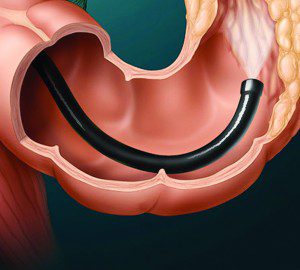By Zorayda “Jiji” Torres, MD
 Colorectal cancer is one of the leading causes of cancer-related deaths in this country. The most definitive way to diagnose it is through a colonoscopy, by Age 50 years, or sooner if you have family history, or other diagnosis like inflammatory bowel disease, or symptoms like a change in bowel habits, etc. It is good to diagnose the disease early to increase chances of survival and reduce the amount of surgery and chemotherapy needed.
Colorectal cancer is one of the leading causes of cancer-related deaths in this country. The most definitive way to diagnose it is through a colonoscopy, by Age 50 years, or sooner if you have family history, or other diagnosis like inflammatory bowel disease, or symptoms like a change in bowel habits, etc. It is good to diagnose the disease early to increase chances of survival and reduce the amount of surgery and chemotherapy needed.
However, getting a colonoscopy does not mean that you are preventing colorectal cancer from happening. It only means that you are trying to find it early, if you have it. So, what does one actually need to do to reduce their risk of this cancer?
There is sufficient evidence now showing chronic inflammation in the colon as contributing to colon cancer development. There is accumulating evidence too suggesting that the population of bacteria and other organisms living inside our intestines have a role to play in causing this cancer.
Did you know that an average adult has 3 to 4 pounds of microbes living on and in them? Called the human microbiome, this population of 100 trillion microorganisms live in our guts, mouths, nostrils, skin and elsewhere in our bodies. The majority of these microorganisms are in our colon and they vastly influence the health of that organ, and of the whole body.
If we have that huge amount of bacteria in our guts, how come we are not all sick? Well, many of these bacteria actually are beneficial to us. We need to have enough of them and cultivate their colonies as they keep the more harmful bacteria and yeast levels in check. And here is what’s important: these good strains of bacteria thrive on vegetable and fruit fiber! They ferment these digestion-resistant plant fibers into short chain fatty acids such as N-butyrate, acetate and propionate. N-butyrate is very important as it is the main energy source of colonic cells. Among its many actions, N-butyrate has been shown to beneficially regulate the colonic cells’ proliferation, leading to fewer pre-cancerous cells. Thus, by eating more vegetable and fruit fibers, we are cultivating the colonies of these protective strains of bacteria.
Gut inflammation from other causes (infection, food sensitivity and “leaky gut”, nutritional deficiencies, poor blood circulation, etc.), also contribute to the growth of less favorable strains of bacteria in the colon. These strains can produce chemicals that are toxic to our colon. However, studies have showed that anti-oxidant nutrients from foods like cruciferous vegetables, green tea, turmeric, garlic, flax seeds, apples, and many others, can help reduce our risk of colorectal cancer. On the other hand, red and processed meats, cheese, sugars and starchy foods, alcohol (especially in men), can raise our risk of this cancer. Physical activity also reduces risk, while obesity and sedentary lifestyle increase risk.
Therefore, while getting a negative report on colonoscopy is good news, one should still think of taking measures to reduce their colorectal cancer risk. If you have non-specific colitis, symptoms of irritable bowel (constipation, diarrhea, discomfort, etc.), are overweight, diabetic, sedentary, or suffer from chronic inflammation elsewhere like arthritis, autoimmune disease, etc., your risk for colon cancer may still be higher than average, despite a negative colonoscopy. You will need to make improvements in your diet and lifestyle, as mentioned above. You might also want to do a more comprehensive stool test to be better guided.
As a functional medicine specialist, I frequently order a comprehensive digestion and stool analysis through special laboratories, even for conditions that do not seem to primarily involve the colon, like autoimmune disease. These stool tests are much more comprehensive than the ones routinely done at hospitals and local laboratories. They can identify hidden causes of inflammation, which can promote cancer. For example, through these tests, I am able to check if patients have adequate levels of beneficial gut bacteria. I am able to see their N-butyrate levels, low
levels of which are associated with poor colonic health. I am able to see certain unhealthy ratios of bacterial groups (Firmicutes/Bacteroidites ratio), which are implicated in obesity, diabetes, fatty liver, and inflammatory disorders. Culture for fungus is also done. If potentially harmful yeast is identified, this can be addressed through diet, use of botanicals or pharmaceuticals, depending on the patient’s overall immune status. Parasites are also tested for using both microscopy and an enzyme assay test. This test can be very useful for those with persistent diarrhea, mucus in stools, and even those with unexplained headache and fatigue. Many other biomarkers of digestion, absorption, and inflammation, are included in this comprehensive stool test. Concrete measures can then be taken to improve the patient’s gastro-intestinal health.
In conclusion, reducing your risk for colorectal cancer goes beyond just getting a colonoscopy. Exercise and a high-fiber diet are important. Getting a comprehensive stool test thru a functional medicine physician like myself, especially if you have chronic inflammatory conditions, may prove quite helpful in achieving optimal colon health and whole body wellness.
Upstream MD
Zorayda “Jiji” Torres, MD
Internal Medicine, Functional Medicine
27499 Riverview Center Blvd, Suite 255
Bonita Springs, FL 34134
239-444-5636 . upstreammd.com









